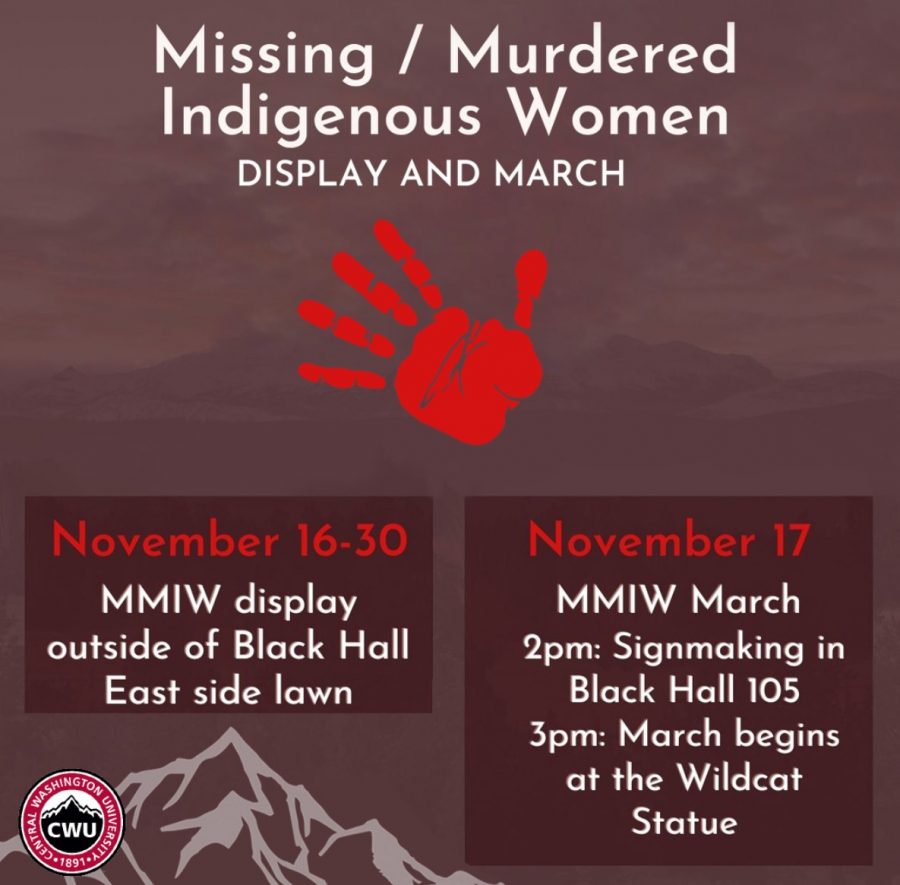CWU embraces Native American Heritage Month
November 11, 2021
November is Native American Heritage Month, and CWU will have multiple events to include the CWU community in the celebration of culture.
Marna Carroll, director of American Indian Studies, provided insight on some events that CWU has planned for the month. Brooks Library will be hosting a series of events with visiting speakers to discuss different aspects of Indigenous history and life.
On Tuesday, Nov. 9, Dr. Ruth Harmon held a virtual presentation reading and discussing her book, “Reclaiming the Reservation: Histories of Indian Sovereignty Suppressed and Renewed.”
More speakers will be presenting throughout the month, including Fern Naomi Renville. On Nov. 17, Renville will be speaking about “the Native American roots of American Democracy,” according to Carroll.
On Nov. 30, author and Emertis Dean of CWU Libraries Patricia Cutright will read from her book, “Native Women Changing their Worlds,” and conduct a book signing on the Brooks Library student commons on the second floor.
The Diversity and Equity Center (DEC) is currently planning a march and display to raise awareness of the issue of Missing and Murdered Indigenous Women (MMIW) to last the month of November.
On Nov. 17, there will be sign making in Black Hall 105 from 2 – 3 p.m. for students to have signs before a MMIW awareness march that same day at 3 p.m. The march will start by the Wildcat statue in front of the SURC and lead to the MMIW display that will be posted outside of Black Hall. The display itself will be posted from Nov. 16 to Nov. 30.
While the history of Native American Heritage Month has dated as far back as the late 1700s, it was a joint resolution approved by George H.W. Bush in 1990 that declared November as Native American Heritage Month.
Events that led to the development of the official declaration started with multiple people pushing for an American Indian Day. Seneca Indian Dr. Arthur C. Parker was a director from the Museum of Arts and Science in Rochester, New York, and had the Boy Scouts of America give a day to recognize the “First Americans,” according to nativeamericanheritagemonth.org.
“The first American Indian Day in a state was declared on the second Saturday in May 1916 by the governor of New York,” the website states. “Presently, several states have designated Columbus Day as Native American Day, but it continues to be a day we observe without any recognition as a national legal holiday.”
After the American Indian Day and Native American Day acknowledgements were made is when Bush approved the resolution. Since the resolution, proclamations with varying names have been issued, such as “Native American Heritage Month” and “National American Indian and Alaska Native Heritage Month.”

